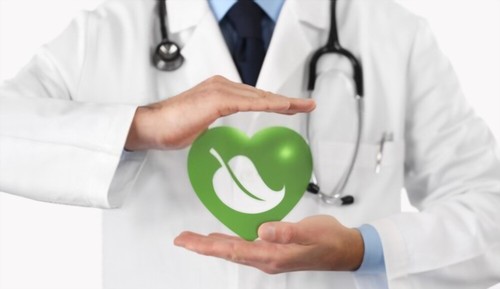 Since man has existed, he has depended on Nature to prevent and treat diseases and other ailments, in addition to meeting the needs of the skin and hair. The beginning of plant use for therapeutic use was instinctive, a case of trial and error, and based on the observation of wild animals who also use plants to ease their ailments. Knowledge was collected and passed through the generations, especially in ancient tribes and indiginous people.
Since man has existed, he has depended on Nature to prevent and treat diseases and other ailments, in addition to meeting the needs of the skin and hair. The beginning of plant use for therapeutic use was instinctive, a case of trial and error, and based on the observation of wild animals who also use plants to ease their ailments. Knowledge was collected and passed through the generations, especially in ancient tribes and indiginous people.
Ancient documents such as the Ebers Papyrus, circa 1550 BC, which can perhaps be referred to as the original ‘pharmacopoeia’, have also prevented knowledge from otherwise being lost. The Ancient Egyptians were well known for their skillful use of plants, and oil extraction, utilised in embalming, perfumes, and for health and beauty usage, and many of these same plants remain in use today. The Ebers Papyrus is believed to have been exclusively studied by Hippocrates, the most famous physician in antiquity, widely known as the ‘father of medicine’, who himself wrote hundreds of documents and founded the first school dedicated to the teachings of medicine. The Hippocratic Oath is still pledged by new physicians today.
 The turning point for the use of medicinal plants came in the early 19th century with the isolation of natural chemicals from plants, and marking the beginning of scientific pharmacy, and the wide distribution of commercial synthetic drugs. As time prevailed, we have started to turn our back on the bounties which nature offers, in pursuit of chemical man-made alternatives. However, it is estimated by World Heath Organisation (WHO) that as many as 80% of the world’s population are still reliant on plants as their primary health provider, whether due to preference, cost or availability.
The turning point for the use of medicinal plants came in the early 19th century with the isolation of natural chemicals from plants, and marking the beginning of scientific pharmacy, and the wide distribution of commercial synthetic drugs. As time prevailed, we have started to turn our back on the bounties which nature offers, in pursuit of chemical man-made alternatives. However, it is estimated by World Heath Organisation (WHO) that as many as 80% of the world’s population are still reliant on plants as their primary health provider, whether due to preference, cost or availability.
Whilst this may seem primitive to some people, it is worth noting that approximately 80% of anticancer, antimicrobial, cardiovascular, and immunosuppressive drugs are of plant origin, whilst up to 50% of pharmaceutical drugs either contain chemicals harvested from plants, or are derived from plants. Even the “semi-synthesized” drugs are natural materials modified by scientists, and most of the man-made “synthesized” drugs are modeled on natural chemicals extracted from plants.
Today, as we seek effective treatments for new diseases, still endeavour to find cures for chronic and life-threatening diseases like cancer, and look for new antibiotics given the increase in multi-resistant organisms, scientists are starting to go back to the roots of medicine and investigate plants once again. Foods and plants first used centuries ago for their therapeutic properties are now being hailed as ‘superfoods’. Scientific studies are on the increase to verify traditional plant remedies, and consumers are seeking more healthy alternatives to chemically laden drugs and beauty products. Yet, it is estimated that less than 1% of plants have been fully investigated so far.
 It is perhaps worth mentioning that the success rate of developing new medicinal agents by the synthetic route may be 1/10,000, yet the success rate can be as high as 1/4 following the route of new therapeutic moieties based on a search of medical plants used in the traditional medicinal system. Plus the human body is more compatible with natural products rather than those synthetically made. As Hippocrates is reputed to have said – “nature itself is the best physician”.
It is perhaps worth mentioning that the success rate of developing new medicinal agents by the synthetic route may be 1/10,000, yet the success rate can be as high as 1/4 following the route of new therapeutic moieties based on a search of medical plants used in the traditional medicinal system. Plus the human body is more compatible with natural products rather than those synthetically made. As Hippocrates is reputed to have said – “nature itself is the best physician”.
The natural cosmetics industry unofficially began back in 10,000 BC when Ancient Egyptians would use scented oils and ointments to care for their hair and skin, and mask unpleasant body odours. Natural oils and potions were an integral part of their lifestyle for beauty and health, and had a place within most rituals.
The skin is the body’s largest organ and its main function is to form a protective barrier for the body. However, 60% of the chemicals which we apply topically are absorbed into the body. So take a good lock at the ingredients listed on the skin, hair and grooming products currently residing in your home. It’s guaranteed most of the mainstream products contain at least one or more of the following: parabens, polyethylene glycol, phthalates, formaldehyde, oxybenzone, sulphates, toluene, mercury, mineral oil, animal oils, plus synthetic colours and fragrances. All of which is going to be partially absorbed into the body.
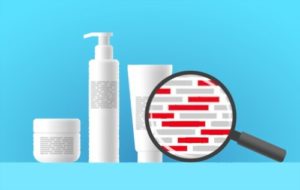 Many of these synthetic ingredients are known to contain harmful chemicals which can majorly disrupt the endocrine system, causing hormone malfunction which controls our mood and metabolism and may lead to birth defects, neurological, reproductive and developmental damage. They can cause cancer, organ toxicity, respiratory difficulties and skin allergies. Furthermore, in the long run they do little for the skin, a quick fix which in time probably exasperates the issue they are supposed to be fixing, or creating new ones. Is it any wonder that more and more people are looking to replace these products with natural products.
Many of these synthetic ingredients are known to contain harmful chemicals which can majorly disrupt the endocrine system, causing hormone malfunction which controls our mood and metabolism and may lead to birth defects, neurological, reproductive and developmental damage. They can cause cancer, organ toxicity, respiratory difficulties and skin allergies. Furthermore, in the long run they do little for the skin, a quick fix which in time probably exasperates the issue they are supposed to be fixing, or creating new ones. Is it any wonder that more and more people are looking to replace these products with natural products.
Natural ingredients have been used for this purpose forever, and herbal remedies relating to skincare have stood the test of time.
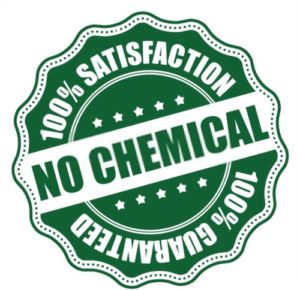 The best way to utilise what nature can provide to care for our health and beauty needs is with natural oils. Everyone can benefit from oils for both our internal and external health. So which oils should you use? What can they do? What’s the difference among the different types?
The best way to utilise what nature can provide to care for our health and beauty needs is with natural oils. Everyone can benefit from oils for both our internal and external health. So which oils should you use? What can they do? What’s the difference among the different types?
Refined, Organic Cold-Pressed & Essential Oils
Many people will have heard about the use of oils such as coconut oil, olive oil and sesame oil for their skin and health. Maybe you have some in your kitchen cupboard? The question arises, are those in the kitchen cupboard the same?
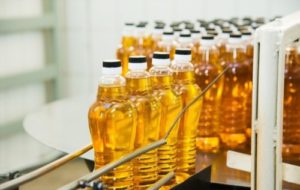 Refined oils:
Refined oils:
There are several ways to extract oil from seeds, nuts, and kernels, the refined oils in your kitchen have most likely been extracted using high temperatures and added chemicals. This also gives some of the oils a higher ‘smoke point’ for use in the kitchen. Unfortunately the use of chemicals and heat means that much of the nutritional value and benefits have been destroyed. You may see bottles labeled as “virgin” or “extra virgin”, basically there is no difference between them, it’s just a promotion gimmick adding the “extra” label, and indicates that the oil has been extracted from the first pressing without the use of chemicals, however it does not mean that heat was not involved during the process, or allowed to build up during pressing (friction can cause the press to become very hot if not controlled). So although the refined oils in your kitchen can still have some benefits, they cannot come close to matching the purity of cold-pressed oils.
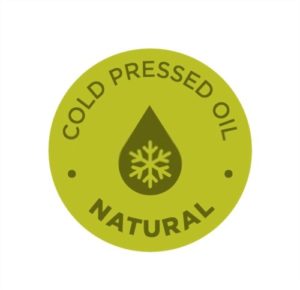 Cold-pressed oils:
Cold-pressed oils:
With cold-pressing the oil is obtained using a modern steel press without the use of heat or chemicals, and the oil is 100% pure. They retain all of the potent nutrients, trace minerals and natural chemicals, and are rich in two main groups of essential fatty acids: omega-3 and omega-6 (which significantly degrade during any heating procedure, even at 50°C.). For use on the skin they will often be referred to as carrier oils, as they do not evaporate on the skin, and can be used to “carry” volatile essential oils. Cold-pressed oils have an astounding amount of benefits for the skin and hair via topical application, and for the body when taken orally.
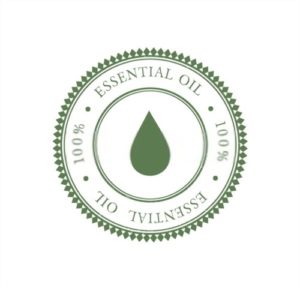 Essential oils:
Essential oils:
Probably everyone has heard of essential oils. Rather than cold-pressing, these are generally extracted by steam distillation. They extract the essence of the plant – the aroma, and also have important benefits for skin, hair and health. As a general rule they should never be put undiluted on the skin, and should never be ingested. They are used in aromatherapy to stimulate the olfactory nerves, connected to the limbic system in the brain, and impart therapeutic effects on the functions which it controls such as blood pressure, breathing, heart rate, hormone levels, memory and stress levels. Essential oils are also absorbed by the skin to travel through the body via the bloodstream and impart benefits to the body’s organs and various systems. They also have useful benefits for the hair and skin.
If we care for nature, nurture and provide care for growing plants, they in turn can return the favour ten-fold, nurturing us, and providing solutions for a number of our ailments and requirements, without the harmful side-effects.

